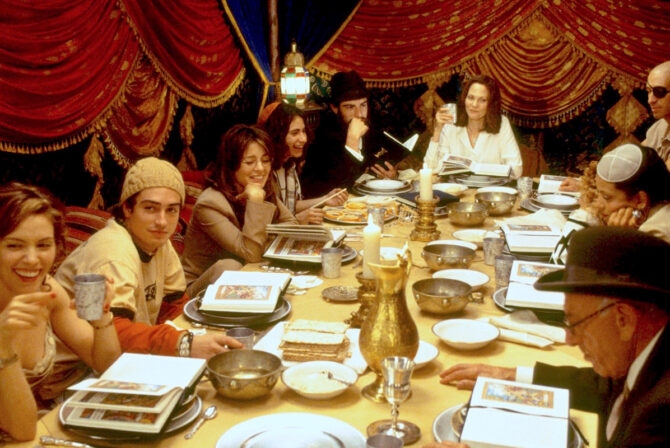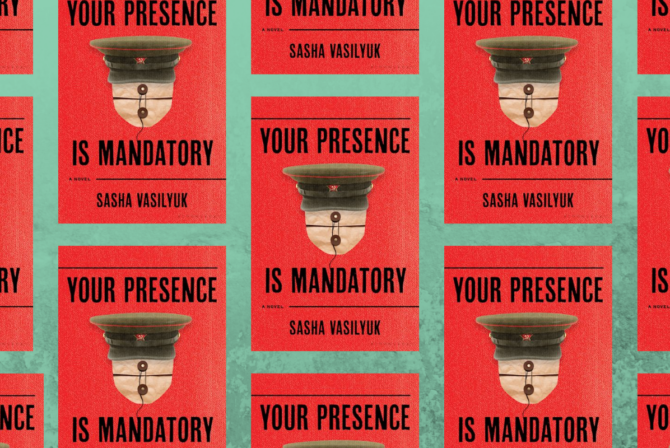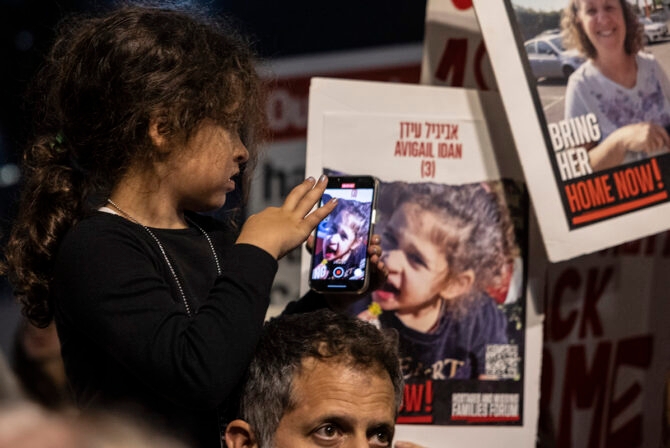Born with a full head of hair, by my first birthday it had grown into a crown of luscious curls. My mother left them short; it was cute, sure, but mostly she had no idea what else to do with it. As I got older I grew a respectable Jew-fro. I’d throw pillow cases over my head and pretend I had long, flowing locks like those of my Barbie dolls and favorite Disney princesses, not to mention many of my friends.
Starting in middle school, my mother and I shared the same “soccer mom” haircut. I carefully smoothed out my bangs (the only hair I had to work with) and, with the curling iron still in place, sprayed copious amounts of hair spray.
I’ll never forget the day in high school when, while hanging out with my best friend at a local Burger King, two boys from another school laughed in my face, saying I looked like a guy. Soon after, two big changes happened: Mom took me to her salon to get a “reverse perm,” and I began growing out my hair. The chemical straightener didn’t actually eliminate my frizzy curls, but it tamed them a little. (I don’t care for photos circa 1994; the hair had to go sideways before it grew down.)
My long hair was an improvement, but it required a lot of care and still never looked the way I wanted. In college I took to elaborately bobby-pinning my mop to keep it out of my face; it was so thick and coarse, I once woke up in the morning to find that a stray bobby pin had survived both a rigorous shampooing and a night of sleep.
Since then, I’ve scheduled a chemical relaxing appointment once every two months and, with the advent of the ceramic flat iron, eliminated my curls altogether. I took to wearing a stylish, angled bob and even once cut bangs that swept across my forehead (a mistake, true, but it felt good to try). My hair still required a lot of product and maintenance, but finally, I felt confident in how l looked.
And then last year, I got pregnant, learning the news five days before my next hair relaxing. My doctor vetoed the chemical process in the first trimester (but really, is anything allowed in the first trimester?) so I canceled the appointment. As my roots grew in, unruly and kinky, I took to regularly wearing headbands. Luckily I didn’t see many people; it was a punishingly hot summer and I was constantly nauseous, so I barely left the house.
Then I experienced a new, hormonal “perk”: my hair, dryer than usual, stopped falling out. There was more of it now. Months past my regular relaxing appointment, even my trusty flat iron couldn’t save the day. I knew I’d never make it through the pregnancy (and let’s face it, the first few months of my child’s life) before I could get to the salon again. And after reading an article in a medical journal that stated that three to four chemical hair processes in a pregnancy were safe, I booked and went in for an appointment.
In my 27th week of pregnancy, I off-handedly mentioned to my husband Jay that I had another hair straightening scheduled. He worriedly admitted to having read several articles and medical journals linking such chemical processes—possibly—to potential health risks to the fetus. If it was very important to me, then he’d understand, but he preferred I didn’t follow through with the appointment.
The tears (and an onslaught of overwhelming emotions) came instantly. Convinced my husband thought I was failing to care for our growing baby (he didn’t), I was crippled with guilt over the fact that I’d been carelessly willing to put our unborn child at risk. I was worried, having already straightened my hair while pregnant, but frustrated by the conflicting and incomplete information available on the subject. And if I’m being brutally honest, there was resentment, too—at Jay, for pointing this all out—and at the pregnancy in general, for preventing me from doing something that gave me confidence and made me look and feel like me.
I canceled my appointment. My hairdresser (a mother herself) told me not to beat myself up. She reminded me that I was not the first woman to do a chemical process while pregnant, and that unlike the newer, Brazilian straightening product, mine did not warn against use during pregnancy. She also offered a possible compromise: applying a gentler formula only on my hairline and part, where the kinks are hardest to manage.
The rules of what’s safe or not during pregnancy are often unclear. My doctor suggested I stop drinking Diet Coke before I even conceived, while I had friends who were told it was fine in moderation during pregnancy. When I asked my gynecologist if it was OK to take the natural sleep aid Melatonin, she vehemently said no, while my OBGYN and perinatologist breezily declared it harmless. It’s hard to know what’s right.
When I could talk about the hair straightening without crying (much), my husband confessed he felt I had been selfish. I won’t deny how much that hurt. But then he also tried to see it from my perspective. Jay started losing his hair in his 20s and did not let it go without a fight, researching hair plugs and medications. To this day he talks with bittersweet nostalgia about the thick, glossy hair of his adolescence. If we lived in an alternate universe—if he had regrown his hair thanks to a medication that might be harmful because he was the one carrying the baby—Jay admits he’d be conflicted.
Women give up a lot to carry a child and be a mother, the least of all being sushi, wine, and over-easy eggs (no one told me I couldn’t have runny eggs!), the most significant being sleep, much of our social lives, and for some, their careers. So vain or selfish as it may sound to some, I needed to mourn my hair straightening appointments and how they made me feel about myself.
I knew before I became a mother, taking on this all-consuming, momentous responsibility, that I would have to work to maintain my identity as a woman separate from my child. Now that my beautiful son is here, I’m learning that finding that balance will be both a struggle and a privilege that I can’t imagine my life without.
Read More:
After My Miscarriage, This Is How the Mikveh Helped Me Heal
3 Awful Questions Not to Ask a New Parent (And What to Ask Instead)
To the Woman Who Told Me My Kids Don’t Belong in Synagogue







